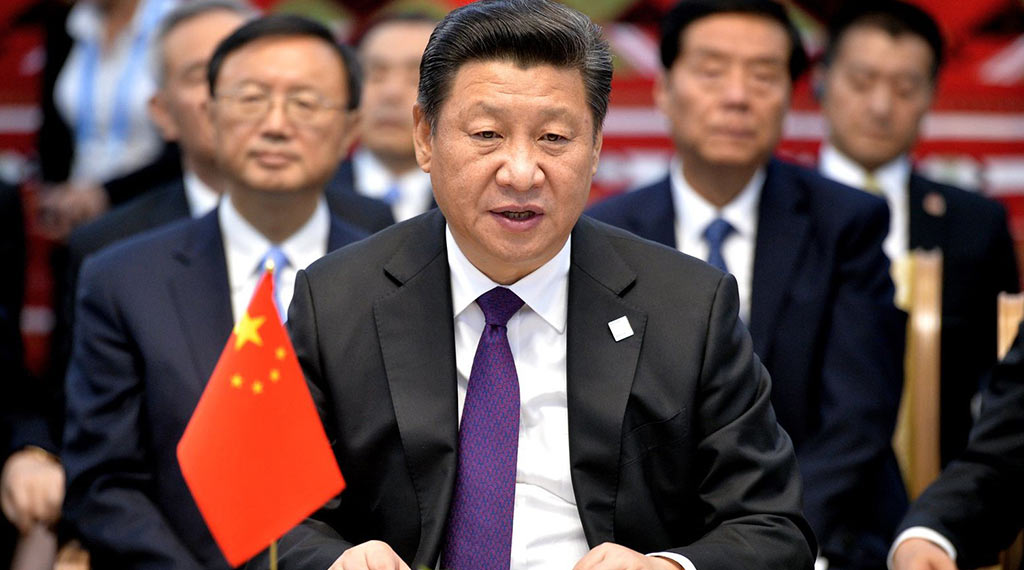Xi Jinping’s ‘March Madness’: His determination compels an intrepid response

What a month Chinese leader Xi Jinping had, and no doubt he would wish March 2023 did not have to end. On the international front, his March built on an active February, when he advanced China’s peace plan for Ukraine and the Global Security Initiative to serve as China’s counter to the Munich Security Conference held annually.
At the outset of March, Xi warned that the U.S. was attempting to encircle, contain and suppress China. On March 10, China brokered a deal restoring diplomatic ties between Iran and Saudi Arabia. Mid-month, Xi traveled to Moscow to meet with Russian leader Vladimir Putin to discuss further developing their flowering entente. He hosted the Global Civilization Initiative on March 19 to advance China’s vision for international politics and its future. Ma Ying-jeuo, Taiwan’s president from 2008-2016, made an unofficial visit to Shanghai at the end of the month, declaring, “We are all Chinese.”
On the domestic front, Xi was also active. He spoke at the closing of the simultaneous meetings of the National People’s Congress, China’s ceremonial parliament, and the Chinese People’s Political Consultative Conference. There he stated that China’s military has become a “Great Wall of Steel” and the Chinese nation must continue its rejuvenation. The world must take China seriously, he said, declaring that China is “preparing for war.”
This frenetic activity reveals a determination to see the realization of the Chinese Communist Party’s (CCP) domination of Chinese people and the world. From Mao Zedong’s original intent to Deng Xiaoping’s implementation of the means to achieve that end — entering the Western economic ecosystem to allow China’s economic growth and, thus, more power — to Xi’s ever-bolder attempts to realize that objective explains the motivations behind his “March Madness” and surfeit of activity. This is possible because Xi secured his position as China’s leader with a historic third term at the CCP’s 20th Congress in October. With his domestic base solidified, he is free to act on international objectives.
Noting this activity is important of its own accord — but is even more significant because it reveals that Xi has decided now is the time to act to realize the CCP’s ambitions through increasingly coercive steps. He has signaled in his speeches that Taiwan and the United States are at the forefront of his agenda.
The Biden administration should heed Xi’s activities, to be sure, and must respond to each in a more active manner than it has so far. President Biden’s address at the second annual Summit for Democracy in March, as part of the administration’s Presidential Initiative for Democratic Renewal, is useful. The administration also should extend direct and vocal reassurance to Taiwan because of China’s threats against it, which will intensify since Taiwanese president Tsai Ing-wen has two stops in America as part of her 10-day trip begun March 29, reportedly including a meeting with House Speaker Kevin McCarthy (R-Calif.).
The AUKUS agreement announced in September 2021 between the United States, United Kingdom and Australia is an important symbol in the near term, since it involves greater participation by the UK in Indo-Pacific Affairs, though tangible fruits of the agreement likely will not be evident for years.
It would be more useful, perhaps, to call leaders of the Quad together very soon to come to agreement that, first, it will become an alliance with extended deterrence commitments to other parties; second, it will broaden into a Quint (and maybe more) by including Taiwan and NATO; and, third, it will deploy conventional forces to Taiwan to increase Taiwan’s conventional deterrent capabilities, augmented by nuclear guarantees from the U.S.
This file comes from the website of the President of the Russian Federation and is licensed under the Creative Commons Attribution 4.0 License.
- Victory over the PRC: Why engagement makes war with Beijing more likely - April 24, 2024
- The US must end engagement (and Biden’s neo-Engagement) with the PRC now - April 10, 2024
- How to address the CCP threat: Engagement, defeatism, or victory - April 3, 2024
